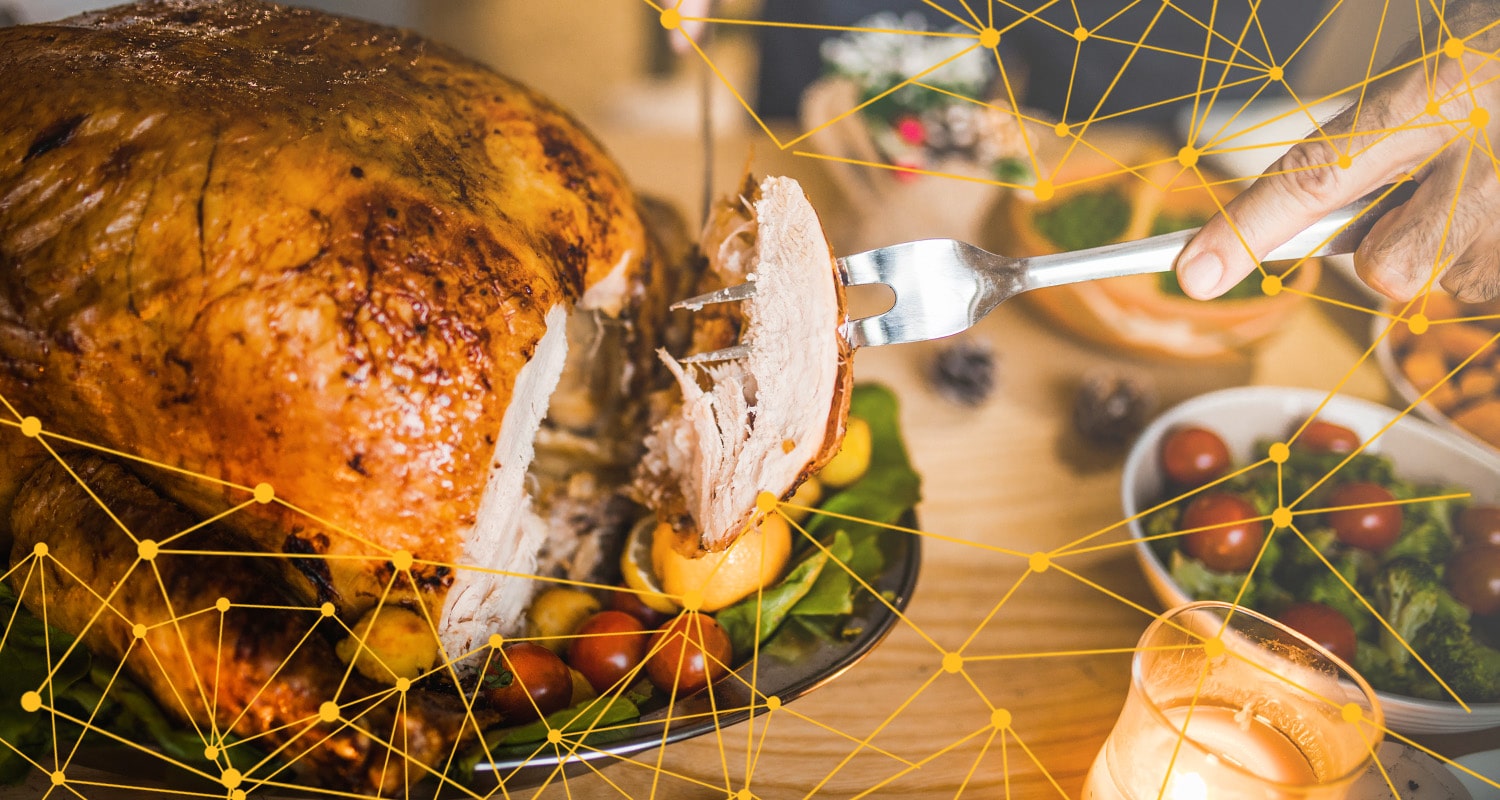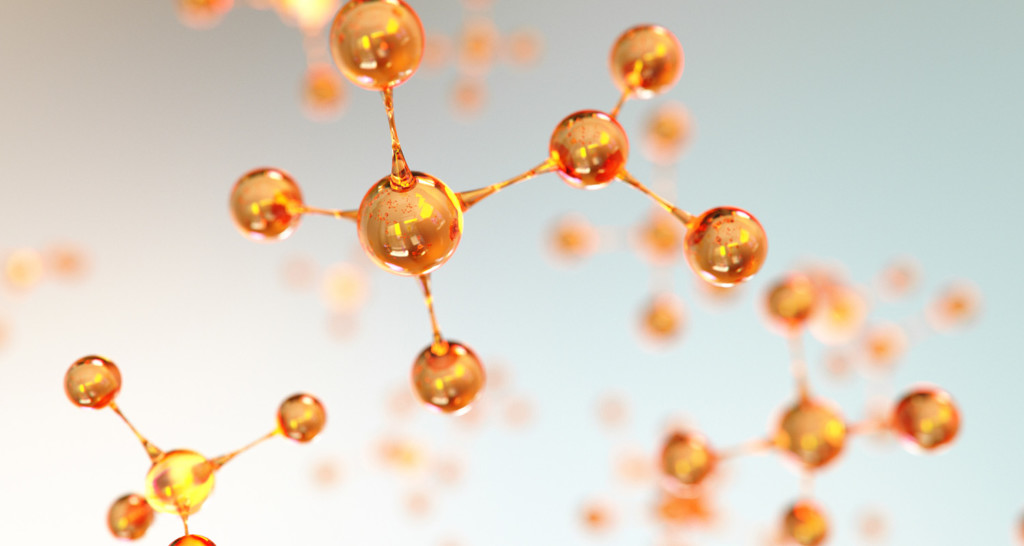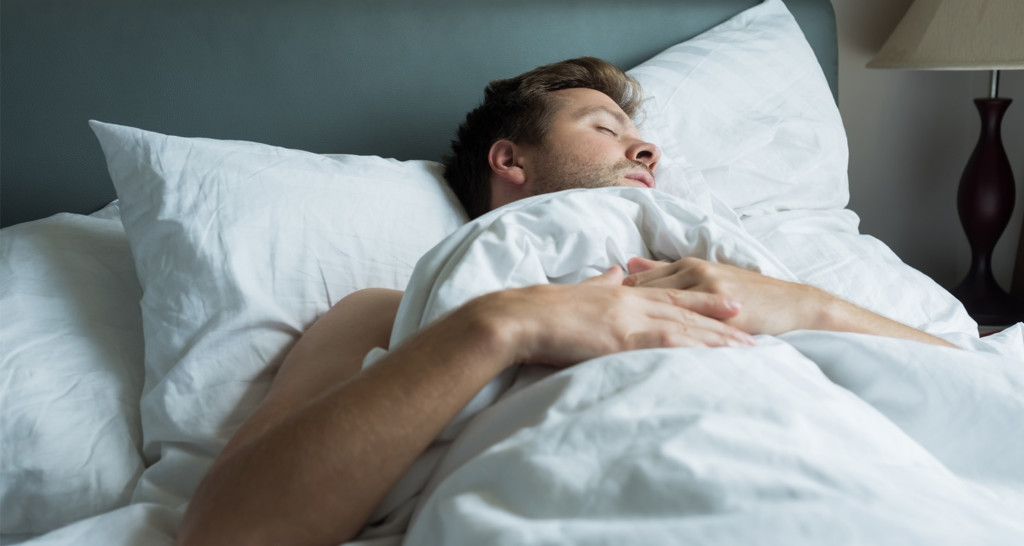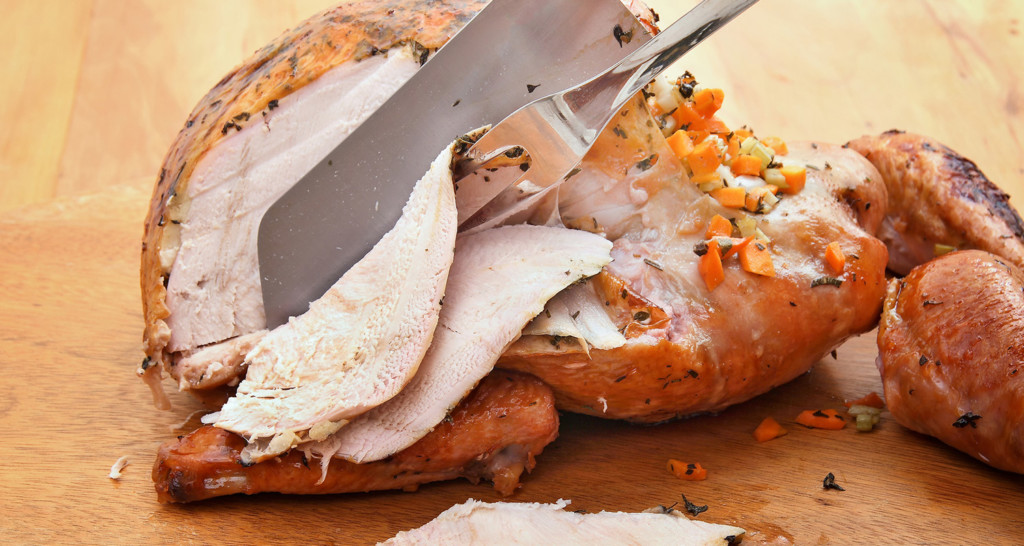
[tldr]
- You’ve had seconds (and thirds) of Thanksgiving turkey and all the fixings and now you’re ready for a nap.
- A common myth suggests that the tryptophan in turkey causes sleepiness.
- Tryptophan is a precursor to the neurotransmitter serotonin and melatonin, a hormone — both regulate sleep.
- Studies show that tryptophan can help you sleep longer and more deeply.
- Tryptophan is present in turkey but in other foods too, including cheese and nuts.
- Turkey could make you dozy on its own, but when you eat it, the tryptophan is competing with a bunch of other amino acids to cross the blood-brain barrier.
- Carbs make it easier for tryptophan to cross the blood-brain barrier.
- Overeating is the major cause for post-meal drowsiness.
[/tldr]
You probably know the feeling — you loaded up your Thanksgiving plate with turkey, stuffing, gravy, and all the fixings. That was followed by pumpkin pie, a sliver of pecan pie (OK, more like a fat slice), and a generous dollop of ice-cream. Suddenly, you feel knocked over sideways with tiredness. Thanksgiving lore says it’s the turkey that’s making you so sleepy, specifically an amino acid found in the bird called tryptophan. But is it really to blame for your post-feast stupor? Read on to discover more about tryptophan, turkey, and whether it makes you sleepy.
What is tryptophan?
Tryptophan is an essential amino acid, the building block of protein. Essential means you have to obtain it through food — your body doesn’t make it. Your body converts tryptophan into a molecule called 5-hydroxytryptophan (5-HTP), which in turn gets turned into serotonin, the brain chemical that makes you feel happy and relaxed.
Tryptophan is also a natural sedative — it’s the precursor to melatonin, the hormone that tells your body when it’s time to sleep.[ref url=”https://www.ncbi.nlm.nih.gov/pubmed/23388477″][ref url=”https://www.ncbi.nlm.nih.gov/pmc/articles/PMC4283270/”]
Tryptophan and sleep
Tryptophan is present in turkey, but it’s also found in most meats, like chicken and beef. Other foods, like spinach and seeds, have even more of it.
In studies, researchers experiment with people’s tryptophan levels by giving them food or drinks enriched with tryptophan to see how it affects their sleep.
In one such study, college students who ate a tryptophan-rich breakfast had more melatonin in their saliva that evening than a control group.[ref url=”https://www.ncbi.nlm.nih.gov/pubmed/25407790″] In another study, elderly people who ate cereal enriched with tryptophan for breakfast and dinner slept far better at night than those who ate standard cereals. Those eating more tryptophan slept longer and more deeply.[ref url=”https://www.ncbi.nlm.nih.gov/pubmed/22622709″]
So can turkey’s tryptophan really make you sleepy?
In theory, turkey could make you sleep better at bedtime. A serving of cooked turkey breast contains 500mg of tryptophan. That’s about the same amount of tryptophan eaten by the college students in the study above — who, it’s worth pointing out, didn’t pass out immediately after eating tryptophan.
Here’s the caveat — when you eat turkey, or other high-protein meals, the tryptophan ends up competing with a bunch of other amino acids to cross the blood-brain barrier (think of it like a mesh fence that protects the brain from bacteria and other harmful substances). The result — only a small amount of tryptophan makes it through and into the brain.[ref url=”http://www.nrlc-group.net/procedures-and-facilities/tryptophan”]
There is an exception — when you eat a tryptophan-loaded food with carbs, like at Thanksgiving, it has an easier time crossing the brain-blood barrier. That’s because other amino acids get called away to help your body regulate all that glucose from the mashed potatoes and stuffing. Since your body uses tryptophan to make hormones, and not for glucose regulation, the tryptophan stays put. With fewer amino acids blocking the way, tryptophan manages to elbow past the few remaining and slip across the blood-brain barrier, where it gets converted into serotonin and melatonin. Cue nodding off into your pie plate.
Still, the major reason why you feel so tired after your Thanksgiving meal is simple — you ate too much. Your body sends more blood to the stomach to digest all that food, meaning less blood flow to the brain. This causes the brain to temporarily slow down. To limit grogginess, aim on filling your plate with mostly vegetables and some turkey.
Alternatively, go ahead and indulge, take a long nap, and call it a day. If anything, it’ll show you how much better you feel when you’re eating foods that energize you.













